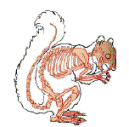
Billy Zane in Dead Calm (Dir. Phillip Noyce, 1989).
In my discussion of James Foley's adaptation of Jim Thompson's After Dark, My Sweet a few posts back, I talked about how being too faithful to a novel can be bad for a film. Phillip Noyce's treatment of Charles Williams's 1963 Dead Calm takes many more liberties with its source, some successful and others not so much. The basic plot remains intact: a man (Sam Neill) and his wife (Nicole Kidman) sailing alone on their yacht (the Saracen) in the middle of the ocean pick up a man (Billy Zane) leaving his own ship (the Orpheus) on a small dinghy. The ship is filling up with water, he tells them, and furthermore everyone else on it is dead from food poisoning. While the apparently distraught man in resting in the cabin, Neill's character (John) takes the dinghy over to the other ship and finds that things are not quite as Zane's character (Hughie) has made them out to be. While he's gone, Hughie overpowers Kidman's character (Rae) and takes over her and John's yacht. For most of the rest of the film, John must try to keep the floundering Orpheus afloat, and Rae must try to figure out a way to overpower her abductor and get back to John.
Most of the changes from the book can't be discussed in depth without giving away crucial turns of plot, but there are two which are especially striking: one concerning the number of major characters, and one concerning the extent of Hughie's sociopathy. With regard to the latter, let's just say that whereas in the book Hughie is a troubled and potentially dangerous young man, in the film he's a murderous psycho. The problem is that although we see graphic evidence of his lethality, Hughie is still written pretty much the same way he is in the novel: it never quite makes sense that he is supposed to be a total monster, especially as the interaction between him and Rae depends on us accepting a certain naively trusting quality in his personality that feels out of sync with the aforementioned changes in his character. It's not hard to see why the filmmakers would want to make these changes: the Hughie of the book is just not that scary in and of himself. Aside from the obvious race against time with the sinking boat and all, the tension comes from the relationship between Hughie and the other characters who don't make it all the way into the film. This leaves Noyce nothing to work with but standard mad-killer suspense tactics, and as I've said, Hughie still seems more like a spoiled, unstable kid making a big mess of things than a true cold-blooded slasher. These uneven elements lead the story into all the predictable cliches of the genre, which is too bad, because the movie has an overall feel that really works at times.
Here, then, in abandoning crucial story elements from the book, Dead Calm may seem to make the opposite mistake from the one made by After Dark, My Sweet; but from another perspective, the mistake is the same: that of retaining elements from the book that it can't make work cinematically. Billy Zane makes a very good Hughie, but he's playing the Hughie of the novel, not the Hughie they forgot to write for the film.
Someday maybe someone will release however much was completed of Orson Welles' late sixties version with Laurence Harvey and Jeanne Moreau, The Deep (no relation to the Peter Benchley novel/ Peter Yates movie), before Harvey died near the end of shooting.



No comments:
Post a Comment